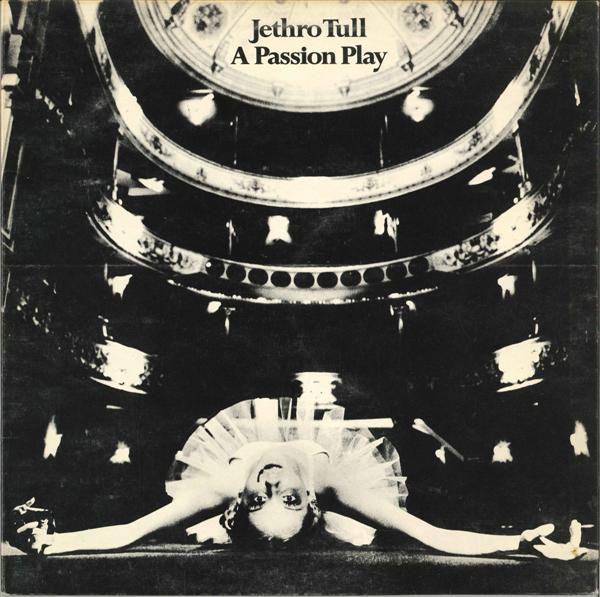Jethro Tull had made their point with Thick as a Brick. Progressive rock simply didn’t have to be overblown and pompous, it could be cheeky, subversive, and (dare I say it) fun. Having successfully lampooned the genre with stunning results resulting in an album which was far better than the majority who took this sort of thing seriously, Tull’s next album was to be an attempt to pull the same trick while maintaining a straight face. It was never originally intended as such though, as the long-unreleased Château D’Isaster tapes would ably demonstrate in the future, however recording at the château had proved to be a frustrating experience, and that resulted in Tull returning to the UK demoralised and in a bad mood which was evident on the album they would record over the next few months.
Compared to much of Jethro Tull’s output, A Passion Play is a moody and uncharacteristically serious affair, lacking the humour that made Thick As A Brick not only one of Jethro Tull’s best albums, but one of the absolute key albums of the genre. All the other crucial ingredients were still in place though, and as a band they were still in the ascendant musically, with Ian Anderson supplementing his usual vocals, acoustic guitar and flute with saxophone, and John Evans experimenting more with early synthesisers. Lyrically A Passion Play is still as strong as anything Anderson had penned previously, and just like Thick as a Brick, A Passion Play is intended to be one long, continuous track across both sides of vinyl, but the whole thing was inescapably much more dark and foreboding than its predecessor, exploring as it does an unfortunate fellow’s experiences in the afterlife.
It is no accident that A Passion Play is one of Tull’s densest sounding albums as well, as there’s a lot going throughout the entire thing, and although some of the changes of pace can lurch a little more than usual, it covers a hell of lot of ground, thus demonstrating that while Jethro Tull had temporarily lost some of their sense of humour, at least their talent was intact. Actually, accusing A Passion Play of lacking humour is quite an odd thing to do, as between the two halves of the main suite, is Tull’s most focused attempt at humour in the AA Milne-indebted “The Story Of The Hare That Lost His Spectacles”. While it is certainly an amusing intermission, it is totally at odds with the moody music on the rest of the album, so why no one had the smart idea of giving it its own track when the album was released on CD (Thus allowing people to skip over it if they so choose) is anyone’s guess. As it happens, the story is usually included on the second track of most CD re-releases, so that anyone wanting to listen to the second half of the album has to listen to it, regardless of whether they feel that it’s just a bit too silly.
In many ways, regardless of the comedic interval, A Passion Play will always be the dark and twisted twin to Thick As A Brick. Much more serious, but musically just as impressive, A Passion Play showed that Jethro Tull could do straight-faced and serious prog rock as well as anyone (better than most actually), but in doing so, they misplaced the lightness and wit of their very best work.














No Comment